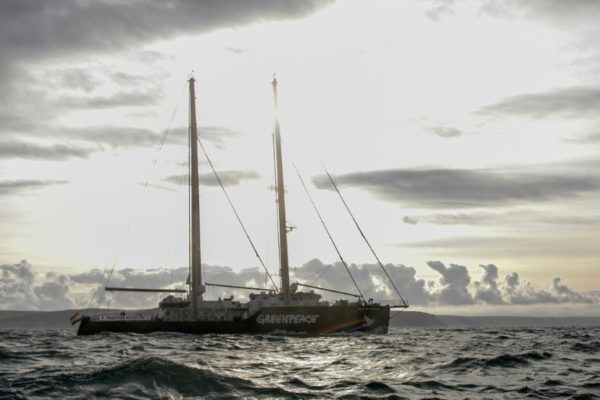Polish guards board Greenpeace’s Rainbow Warrior in coal clash


Published on 10.09.2019 at 10h54 by AFP
Armed Polish border guards boarded Greenpeace’s Rainbow Warrior ship, which was blocking a cargo of coal from being unloaded at the port of Gdansk, the environmental group said Tuesday.
The overnight intervention by a special maritime unit was confirmed by a spokeswoman for the guards, Agnieszka Golias, who added that of the 18 people on board, only two were detained: the captain and one of the activists.
The others were released following identity checks.
The activists returned to the Rainbow Warrior, which authorities hauled out of the port of Gdansk, Tadeusz Gruchala, a maritime border guards spokesman told AFP.
He confirmed that the vessel dropped anchor outside the port and was “not under arrest”.
“We detained the captain, who is a Spanish national, and an Austrian activist for navigation security violations and then hauled the vessel out of the port where it had no authorisation to anchor,” Gruchala said.
Maritime guards “boarded the vessel by force after our repeated requests for free passage onto it were ignored,” he added.
Greenpeace said in a statement that the Monday operation was meant to call attention to the Polish government’s policies that favour using coal — a “dirty” fuel that contributes significantly to global warming.
“Poland must abandon burning coal by 2030,” Pawel Szypulski, programme director of Greenpeace Polska, said in the statement referring to the target date for the phasing out of coal use in the European Union.
Under the 2015 Paris climate treaty, the EU pledged to reduce its carbon emissions responsible for causing rising global temperatures by 40 percent below 1990 levels by 2030.
Greenpeace activists also painted “stop coal” in large white letters on the side of the cargo vessel carrying the shipment of coal from Mozambique.
Poland’s right-wing Law and Justice (PiS) government plans only a gradual reduction in dependence on coal for electricity production, from around 80 percent today to 60 percent in 2030.
Poland along with Hungary has rejected an EU bid for zero net greenhouse gas emissions by 2050, insisting this would hamper their economies.










0 Comments